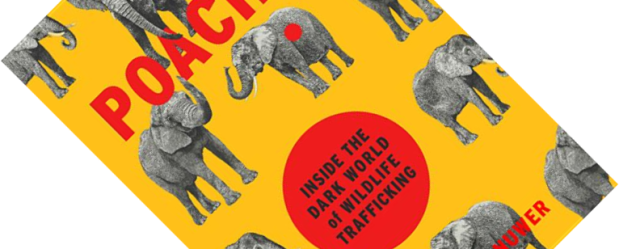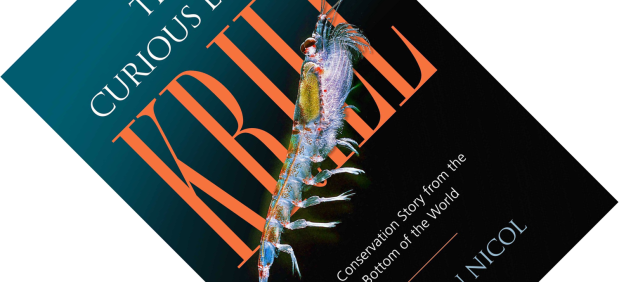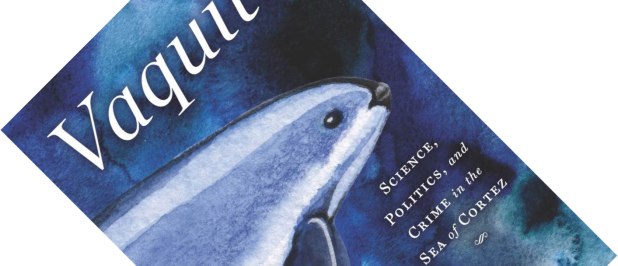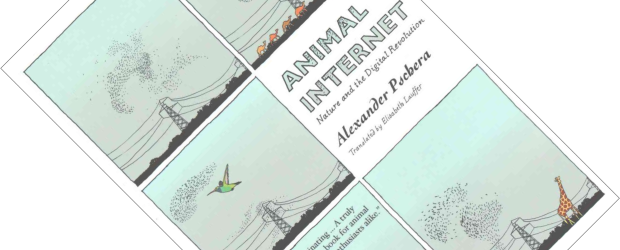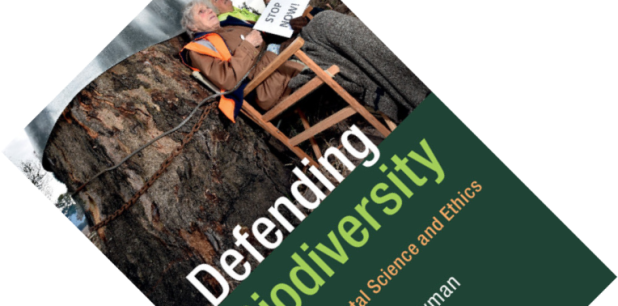Wildlife conservation and field biology are not for the faint of heart. Studying wild animals in their natural habitat brings with it long periods away from home, lack of comfort, and many logistical challenges. It calls for a certain kind of grit. But equally, it requires a persistent mindset to fight the cause of wildlife when conservation clashes with company’s bottom lines, political aspirations, and the wants and needs of an expanding world population. Even amongst this hardened bunch, few people would voluntarily venture into icy wastelands to study the animals existing at the edge of the world. Joel Berger is one of them and Extreme Conservation is his story, equal parts adventure narrative as it is a meditation on the value of wild nature.
wildlife conservation
Book review – Poached: Inside the Dark World of Wildlife Trafficking
Around the world, wildlife is under pressure. Habitat loss, hunting and poaching, invasive species, climate change – pressure is exerted on many fronts. One particularly insidious and ugly kind of threat is wildlife trafficking. Much like the illegal trade in narcotics, modern-day slaves, or counterfeited goods (and commonly connected to the same cartels), there is a vast and sprawling black market in animals – dead and alive – and animal parts. With Poached, journalist Rachel Love Nuwer presents an incredibly wide-ranging and thorough investigation of the drivers of this trade, its victims and measures to combat it.
Book review – The Curious Life of Krill: A Conservation Story from the Bottom of the World
Krill is one of those enigmatic invertebrate groups that feeds whole ocean ecosystems but remains itself little known. Even to a biologist such as myself (who has studied fish for crying out loud!), these critters are largely a set of question marks. I mean they are crustaceans, swim in the sea, are numerous and… oh look, a blue whale!
Book review – Vaquita: Science, Politics, and Crime in the Sea of Cortez
If I asked you to name the most endangered cetacean species, I doubt the vaquita would come to mind. You might mention the baiji, the dolphin living in China’s Yangtze river, but alas, no living members of this species have been seen for years, despite intense search efforts, and the species is presumed extinct. Unfortunately, the vaquita seems to be next in line. Biologist Brooke Bessesen here tells its sad story, revealing the complex world of species conservation.
Book review – Animal Internet: Nature and the Digital Revolution
This book is translated from the German Das Internet der Tiere, published in 2014. I started reading it thinking it would mostly deal with what the latest developments in animal telemetry are telling us about conservation, and what we can learn moving forward. With advances in technology, GPS units and tracking devices are now becoming so small that we can even attach them to insects. Scientists are uncovering a wealth of data about bird migrations, whale feeding patterns and many other behaviours that are normally unobservable to us. Instead, this book provides a philosophical blueprint for how technological advances could bring about a new way for humans to reconnect to animals.
Book review – Effective Conservation Science: Data Not Dogma
Following hot on the heels of Cambridge’s Defending Biodiversity: Environmental Science and Ethics, Oxford University Press has just published the edited collection Effective Conservation Science: Data Not Dogma. Whereas the former title was careful about courting controversy, a quick scan of the chapter titles of this book suggest it is seeking out hot-button issues sure to upset some people (“Uncomfortable questions and inconvenient data in conservation science”, “Introduced species are not always the enemy of conservation”, or “Rehabilitating sea otters: feeling good versus being effective”). Together, these two books form an excellent combination of a philosophical and pragmatic examination of biodiversity conservation, and how we could do better.
Perhaps more than any other discipline, conservation science arouses strong feelings of righteousness, of fighting the good cause. Critical questions or results that run counter to the narrative of nature-in-decline are unwelcome, often out of fear that policymakers and the media will misinterpret such findings, leading to drastic reduction in support for conservation efforts. Though understandable, Effective Conservation Science is a collection of 26 cautionary tales of the dangers of such thinking.
Book review – Defending Biodiversity: Environmental Science and Ethics
Most people would agree that it is important to conserve wildlife and the environment it lives in. But can you clearly articulate why? Defending Biodiversity brings together an ecologist and two philosophers to critically examine the arguments environmentalists often put forward in favour of biodiversity conservation. Because, as they point out, a lot of these arguments are not very strong, and sometimes conflict with each other, or with other parts of what environmentalists wish to achieve. Now, before you get all worked up, all three authors strongly believe that biodiversity ought to be conserved, and this book is not an attack on environmentalists or biodiversity conservation. They are careful to avoid being unnecessarily controversial with this book. Rather, they want to help environmentalists improve and strengthen their arguments and to become more persuasive in debates.
Book review – Shark Attacks: Myths, Misunderstandings and Human Fear
If there is one group of animals that Steven Spielberg has not done a favour, it must be sharks. Already feared as a dangerous predator in an environment where humans are not in their element the 1975 movie Jaws drove this fear to stratospheric heights and painted a portrait of these fish as ruthless man-eating monsters. Browse any selection of books on sharks, and you’re likely to see photos of a breaching great white, jaws agape. Many people are not happy with this Jaws effect (see for example Lindsay Abrams’s post on Salon or Marc Lapadula’s piece on Screenprism), and this lingering fear even affects policymakers (see Christopher Neff’s article in the Australian Journal of Political Science). Tobey Curtis provides an interesting counter note to this sentiment on The Fisheries Blog, also pointing out how – ironically – Peter Benchley, author of the book on which Spielberg based his movie, was actually an advocate for shark conservation (see his book Shark Trouble). As a side-note, shark attacks have happened for as long as human have entered the sea, though have long been poorly documented – Richard Fernicola’s Twelve Days of Terror: Inside the Shocking 1916 New Jersey Shark Attacks is a bit of an exception.
This, by way of a short introduction, brings us to the current book: Chapman’s Shark Attacks. The problem with shark attacks is that they are a bit like plane crashes: low-probability, high-impact events. You’re not likely to experience either, but when you do, the results can be disastrous. And thus we fear both flying and sharks.
Book review – The Big Conservation Lie: The Untold Story of Wildlife Conservation in Kenya
This book is a searing critique of the wildlife conservation movement, specifically in Kenya. To be clear, this is not a book serving some shady agenda that seeks to deny the need for conservation. Instead, the two authors, a Kenyan journalist and a carnivore ecologist, are very critical of the way in which white, rich westerners dominate this field, to the exclusion of native voices and needs.
Book review – Rise of the Necrofauna: The Science, Ethics, and Risks of De-Extinction
How to Clone a Mammoth, Resurrection Science, Bring Back the King, and now Rise of the Necrofauna. There has been no shortage in recent years on books written for a general audience that talk about de-extinction: the controversial idea of resurrecting extinct species using recent advances in biotechnology. Futurist Alex Steffen catchily refers to them as the necrofauna mentioned in the book’s title. Rather than focusing on the technical side of things, radio broadcaster and writer Britt Wray here foremost discusses the ethical, legal and other questions this idea raises. And once you start thinking about it in earnest, it raises many thorny issues. No wonder it has been a controversial issue.


